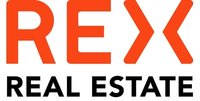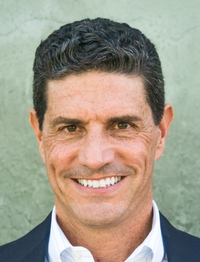Tuesday, January 23, 2018
REX: Skipping The MLS When You Sell Your Home, with Jack Ryan

Anyone who has ever bought or sold a home is most likely familiar with the Multiple Listings Service (MLS), the big database of homes for sale used by traditional real estate agents. However, is it better to skip the MLS (and agent) entirely the next time you sell your home? Woodland Hills-based REX(www.rexchange.com) is backed by such well known angels as as Scott McNealy, co-founder and former chief executive officer, Sun Microsystems; Dick Schulze, founder, Best Buy; Gordon Segal, founder,Crate and Barrel; Amit Singhal, former senior vice president of search, Google; and Jack Greenberg, former chief executive officer, McDonalds. The company just raised $15M more in a Series B. We caught up with Jack Ryan, the CEO of REX, to understand how, exactly, the company sells homes without the MLS.
For those not familiar with REX, what do you do?
Jack Ryan: REX is the easiest way to sell real estate without using a traditional agent or relying on the MLS. Residential real estate has gone virtually unchanged for 50 years. Using big data, artificial intelligence, and machine learning, REX takes care of everything both buyers and sellers need, while removing traditional agent commissions of 5-6%. Our intelligent data-driven marketing, seamless transaction engine and licensed REX Agents sell homes faster, create better experiences, and yield huge savings for buyers and sellers.
Where is the company now in terms of the service?

Jack Ryan: We've now been doing this for three years. We started offering this in Los Angeles, and have since expanded to Orange County and San Diego. We are planning to expand to Texas at the end of January, San Francisco soon after, and Denver, Colorado on March 1.
So you're not a marketplace?
Jack Ryan: You don't have to be a marketplace to be successful. We're successful, if we get people right now who want to sell their home, and we can find buyers for that home. We're now finding people interested in this, spontaneously. They are contacting us, asking us if they can list their home with us. Of course, we love it when people use us as a marketplace, but to be successful, we do not need to be a marketplace, we just need to find people who want to sell their homes, and be able to find buyers for that home, which is all we do.
Why don't you use the multiple listing systems (MLS) that are so commonly used in real estate?
Jack Ryan: I was at Goldman Sachs for 20 years, and people used to think floor brokers on the New York Stock Exchange move shares. They don't. It's far more efficient to find a buyer directly, instead of paying floor brokers a lot of money. It's the same analogy as residential real estate. Lots of people go to Zillow and Trulia to look for homes, but it's not nearly enough. Tesla doesn't just put their car up on Cars.com and wait for buyers, because that's just not how it works. They have to go out and find buyers. That's the same thing with Zillow or Trulia. We're targeting buyers using their digital foot print. How long have they lived in their home? Do they have positive equity in their home? What are their recent purchases? From all of this, you can tell if they are going to be a buyer or not a buyer for a home. If you just bought a big screen television from Best Buy, it's like you're not going to be buying a new home soon. Why would you look for a home if you just paid a lot to Best Buy for installation? There are all sorts of ways to find buyers, based on their digital footprint. We've also developed technology to target them, once we've found them, across Facebook, Instagram, Snapchat, or Waze, whatever they are using most frequently. So, the simple answer is we're using big data and artificial intelligence to find buyers, in a way that is more plentiful and cost effective than an MLS, rather than just crossing your fingers and hoping someone will check the MLS that day.
What's your background?
Jack Ryan: I went to Harvard Law and Business school. After that, I worked in a refugee camp in South Texas for almost a year, until I thought I ought to do something with my life, when I joined Goldman Sachs for 20 years. After that, I went to go teach at a public school in Chicago. I ended up launching this when I realized this was just like Goldman Sachs, where instead of floor brokers, they were shifting to electronic trading. That actually solved two problems at once, by also dramatically reducing the cost and letting groups who couldn't before sell stocks and bonds. The second piece, has been my lifetime desire to build homes and schools for those without any.
How'd you end up here in LA, after being in Chicago?
Jack Ryan: I was in Chicago, and before that, I was in New York with Goldman. I moved out here seven or eight years ago because the technology environment here is very robust. The second reason, is the weather is so much better than the weather in Chicago. For those who haven't lived in the midwest, it's freezing cold and there's no sun in the winter. You wouldn't understand that if you haven't lived in Chicago, Ohio, Pennsylvania, and the like.
Finally, what has been the biggest lesson you've learned from the startup so far?
Jack Ryan: One, is how excited the market is about this idea. We've now sold our 500th home in two years, and we'll do a billion dollars in transactions this year. That's pretty fast, much faster than we thought, and faster than we told our Series A and Series B investors. Some of the counterintuitive things we learned, is we thought our user base would be Millennials, who are used to doing everything through an app or a computer screen. That turned out to be true, but we also found the better customers are those that had sold their home before, using the traditional method—and thought “man, I spent a lot of money for that” and didn't get much from their agent. For a typical home in Los Angeles, which might cost $500,000, those home sellers are paying $30,000 to their real estate agent. I don't think many people get $30,000 worth of value out of that. So, even though we thought our best customers would be young, it ended up the best customers are the ones who wanted an improved experience selling another home.
Thanks!